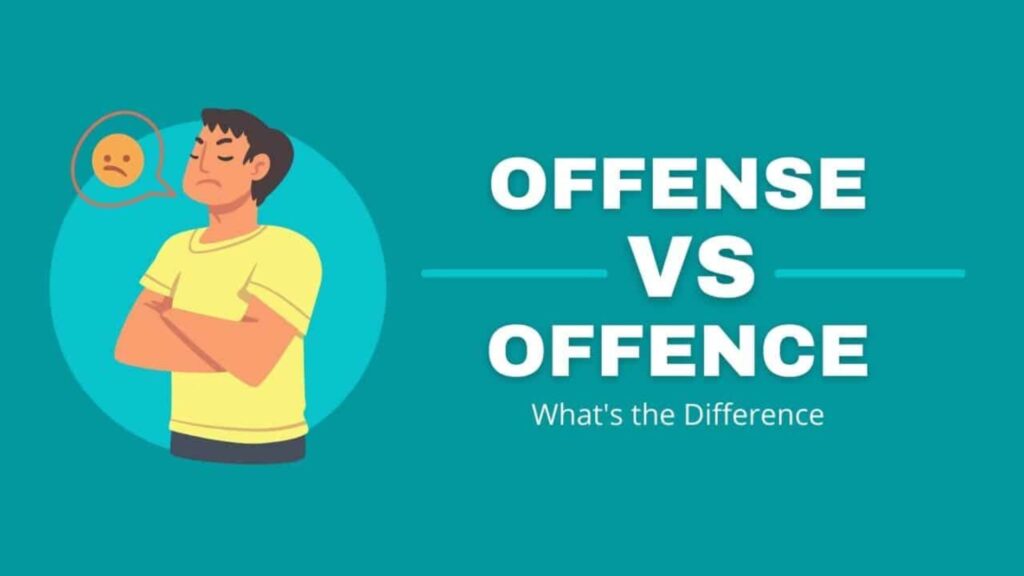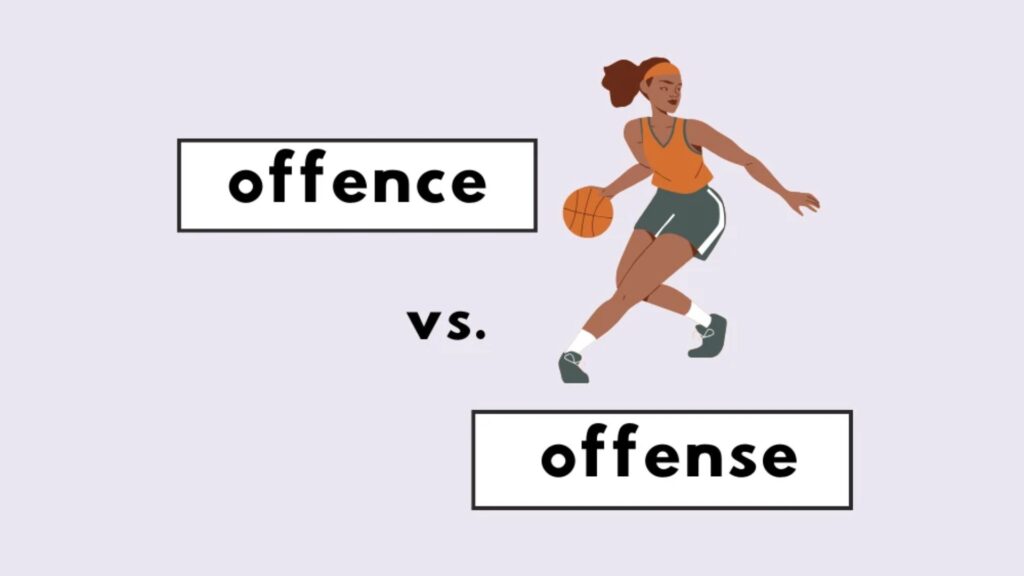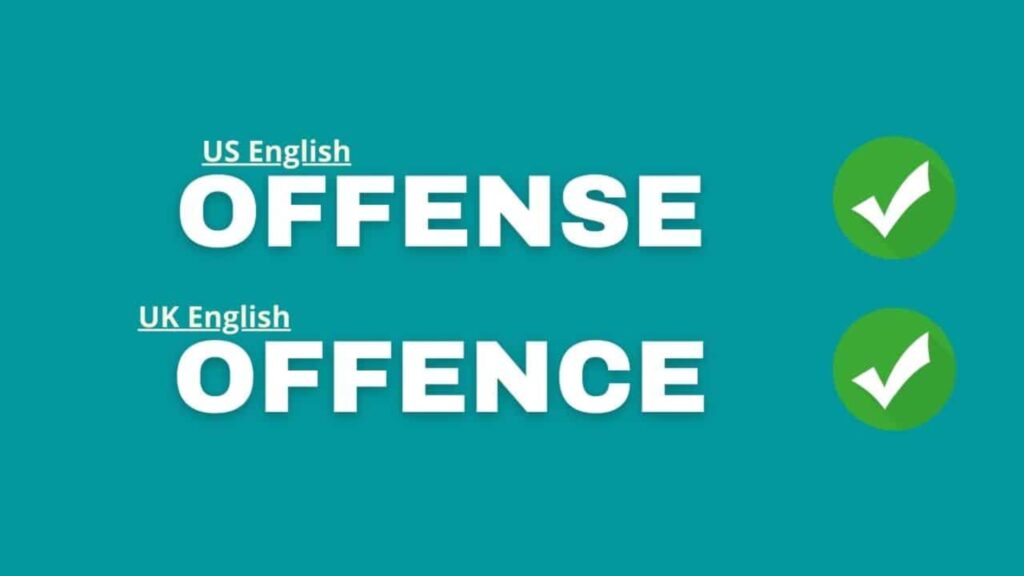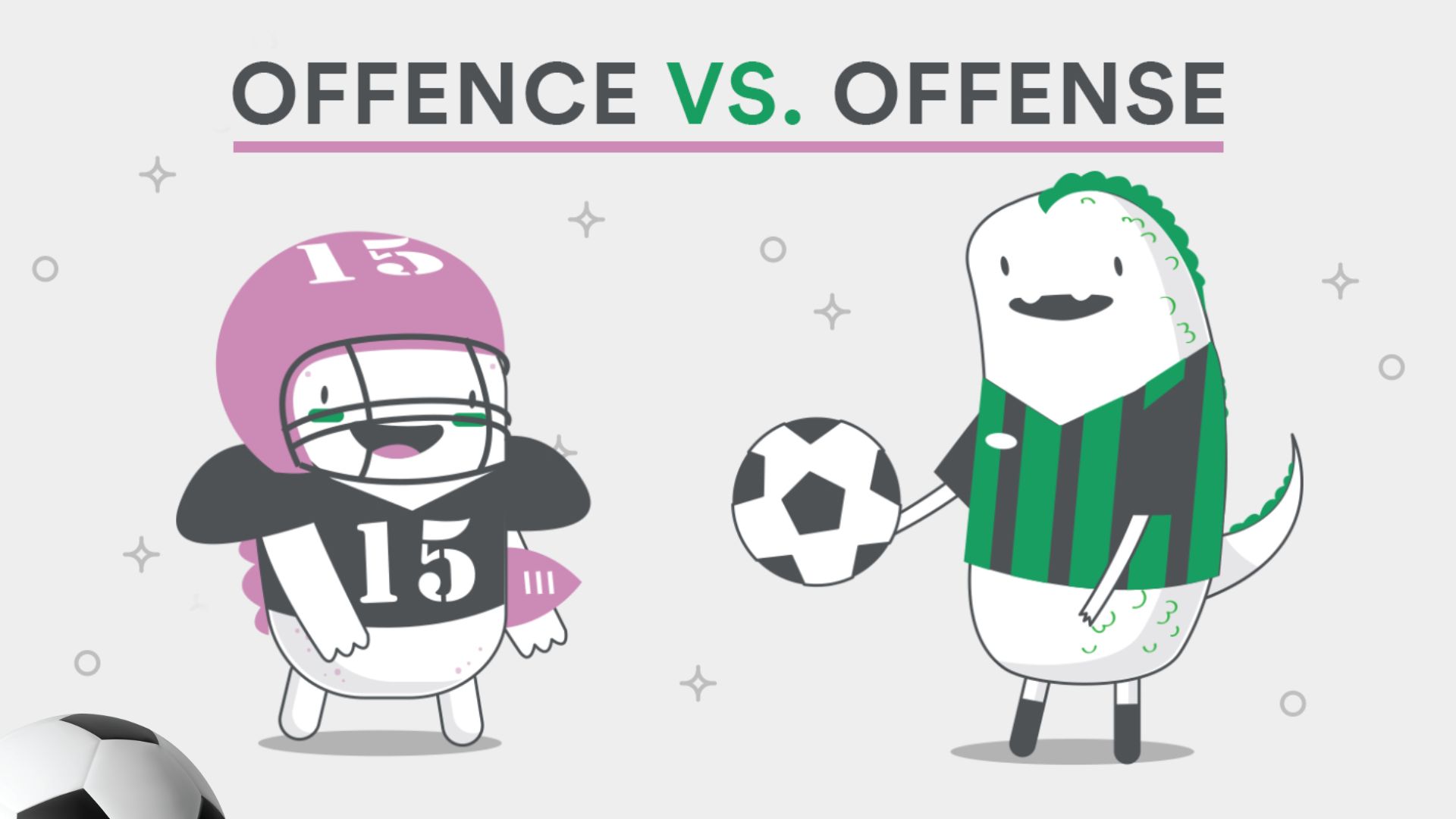Have you ever paused mid-sentence, wondering, “Should I write offence or offense?” You’re not alone. This is one of those tricky spelling differences that catches even experienced writers off guard. The good news? Both words are correct but they aren’t used in the same places.
So, which one should you choose? The answer depends on where your audience lives. Let’s break it down and clear the confusion once and for all.
Offence vs Offense Meaning

Before we dive into spelling, let’s make sure the meaning is clear. Offence (or offense) has several related meanings:
- A crime or violation of the law (e.g., a criminal offence).
- An action that causes someone to feel insulted or upset (e.g., She took offence at his remark).
- In sports, particularly American football, it refers to the team trying to score points (e.g., The offense played brilliantly).
In short, both offence and offense share the same definitions, but the spelling depends on regional conventions.
UK vs US Spelling Rules
Here’s where the difference comes in:
- Offence is the British English spelling.
- Offense is the American English spelling.
So, if you’re writing for readers in the UK, Canada, Australia, or New Zealand, you’ll use offence. If your audience is in the United States, offense is the preferred form.
This isn’t the only word where British and American spellings differ. You’ll see the same pattern in defence vs defense, licence vs license, and even pretence vs pretense.
Words Ending in -ce vs -se
Why the difference? It all comes down to spelling reforms in American English led by lexicographer Noah Webster in the 19th century. He believed in simplifying spellings, which is why:
- British English often keeps the -ce ending (e.g., offence, defence, licence).
- American English uses the -se ending (offense, defense, license).
Usage in Legal and Everyday Contexts

You’ll see offence/offense in many contexts, from legal documents to casual conversations. Here are a few examples:
- Legal terms: committing a traffic offence, charged with a criminal offence.
- Politeness and feelings: No offence intended, but…, She took great offence at the comment.
- Sports: In American football, you’ll hear: The offense scored two touchdowns.
Examples of Offence in a Sentence (UK Style)
Here are some examples using the British spelling:
- He was fined for a driving offence.
- Please don’t take offence, but I disagree.
- It’s a serious criminal offence under UK law.
Scenario: Email Using “Offence”
Subject: No Offence Intended
Hi Sarah,
I hope you’re doing well. I wanted to clarify a few points from yesterday’s meeting. Please don’t take offence at my feedback it’s meant to help improve the project outcome.
Best regards,
James
Examples of Offense in a Sentence (US Style)
Now, let’s see the American spelling in action:
- He was arrested for a serious offense.
- No offense, but I think there’s a better way to do this.
- The team’s offense dominated the entire game.
Scenario: Email Using “Offense”
Subject: Hope This Doesn’t Cause Offense
Hi Mark,
Thanks for sharing the report. I noticed a few errors in the financial data. No offense, but we’ll need to correct those before sending it to the client.
Regards,
Laura
Common Spelling Differences in English

This isn’t the only UK vs US spelling puzzle. Here are a few others to keep in mind:
| British English | American English |
|---|---|
| colour | color |
| favourite | favorite |
| analyse | analyze |
| defence | defense |
| licence | license |
Notice the patterns? When you’re writing for an international audience, consistency is key. Mixing spellings like colour and offense in the same document can look unprofessional.
Quick Reference Table
Here’s a simple guide you can bookmark:
| Word | Region | Example |
|---|---|---|
| offence | UK, Australia | He committed a criminal offence. |
| offense | US | The offense played exceptionally. |
Common Mistakes & How to Avoid Them
- Mixing spellings in one piece – If you start with British English, stick with offence throughout.
- Using “offence” in US sports context – In American football, it’s always offense, never offence.
- Not considering your audience – Business emails, academic writing, and legal documents should follow the regional norm.
FAQs on Offence vs Offense
Which is correct: offence or offense?
Both are correct. Offence is British English; offense is American English.
Do Americans use “offence”?
Not in standard writing. You’ll almost always see offense in the US.
Is one more formal than the other?
No, it’s purely a regional spelling difference.
Final Thoughts
The difference between offence and offense isn’t about meaning it’s about geography. If you’re writing for the UK or Commonwealth countries, choose offence. For the US, stick with offense.
When in doubt, know your audience. Consistency matters more than anything else. And if someone corrects you? Don’t take offence or offense it’s an easy mistake to make.

